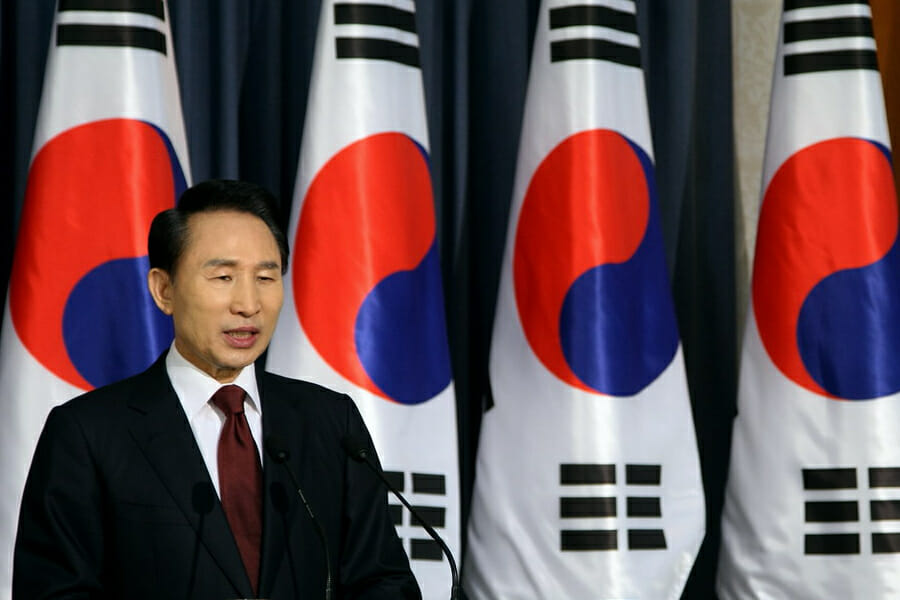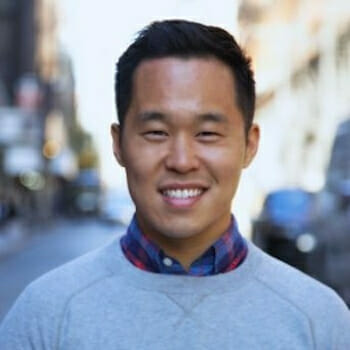
Seoul’s ‘New’ Political Parties
With the April National Assembly elections just a few months off, the two main South Korean political parties have undergone major face-lifts, or at least they’ve been trying to and for good reason. Just this past week, the ruling conservative Grand National Party (GNP), under the chairmanship of one of South Korea’s most influential female politician, Park Geun-hye, reemerged as the Saenuri Party (meaning the “New World” Party).
The new Saenuri Party brand comes after months of very public internal fighting and a string of embarrassing leadership meltdowns for the ruling conservative party. Late last year, the GNP stood by helplessly as members of the party’s five-person Supreme Council resigned one by one. The saga reached its climax in December when then-Chairman, Hong Joon-pyo, weighed down by allegations of incompetence and corruption from inside and outside his party, announced he would be stepping down from his post.
In addition to the conservative party’s hemorrhaging leadership, a growing number of younger members of the GNP, disillusioned by party elders, made public calls for comprehensive internal reform. Representative Hong Jung-wook, a leading member of 21-person freshman class group, called Minbon 21, announced he would not be seeking reelection, stating: “The past four years has been a series of disappointments and frustration for me. I could neither bridge the gap between the national vision and people’s vision nor shed off people’s cynicism and distrust toward politics.”
And in addition to inter-party gridlock, the GNP suffered from a number of election interfering and bribery scandals. One particular embarrassment to the GNP involved Representative Lee Song-deuk, the brother of the current President, whose aide was charged with accepting $619,000 in bribes. Consequently, Representative Lee announced that he would not be running for reelection.
Meanwhile on the other side of the aisle, the main liberal opposition party has been going through its own rebirth. In mid-December, the Democratic Party (DP) merged with a smaller liberal faction to create the United Democratic Party (UDP). At the helm of this new minority party is another influential South Korean female politician, Han Myeong-sook.
Much like the GNP, the then-Democratic Party suffered from intra-party struggle and a press that was more than happy to televise it. It’s Chairman, Sohn Hak-kyu, a defector of the GNP, became a lightening rod of criticism by his party members, who accused him of often acting alone on top party decisions. Park Jie-won, a former DP floor leader and the head of a powerful faction within the National Assembly, and other senior leaders of the DP were especially critical of Sohn. The party divide reached its height last December during a DP convention, when numerous scuffles and violent interferences broke out during party election procedures, pitting the then-Chairman, Sohn Hak-kyu squarely against Park Jie-won, who led protests both inside and outside the convention center.
And so, after months of intra-party soul searching and leadership shuffles, the newly minted Saenuri and UDP seem eager to focus on campaigning. With three months to go until election day, these two parties are facing a hostile public, angry over the growing income gap and months of political brawls. According to a poll by the Officer of the Minister of Special Affairs, nearly 87.1% of adults and 85.6% of adolescents feel that they “do not have confidence in politics and politicians.” In order to tap into this public ire, both parties recently unveiled their campaign platforms, which were noticeable leftward leaning. These reforms include chaebol reform, increasing social welfare, and a promise to create more jobs. For now the UDP is winning the message war, as it holds a comfortable lead over Saenuri for the coming National Assembly elections. However, with the Presidential elections following eight months afterwards, the person to replace President Lee Myung-bak is still an open game.
And recently, the battle for the Blue House (South Korea’s Presidential residence) has seen a new entrant, the increasingly popular potential dark horse candidate: Ahn Cheol-su.
Ahn is a philanthropist and businessman with no party allegiances, whose possibility of running for President has become fodder for much media and kitchen table speculation. Though some on the left have been wooing Ahn to join their party, Ahn has remained taciturn on much of his political intentions. Party merging and renaming is nothing new in South Korean politics and the coming months will be a public litmus test for the brand appeal of the two “new” parties, the results of which will set the stage for determining the nation’s Presidential hopefuls.
